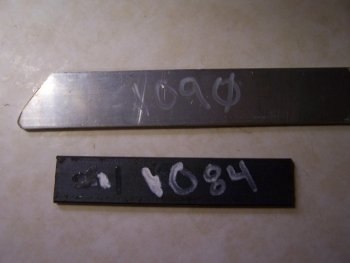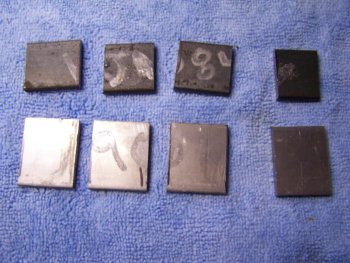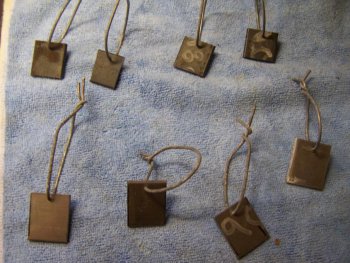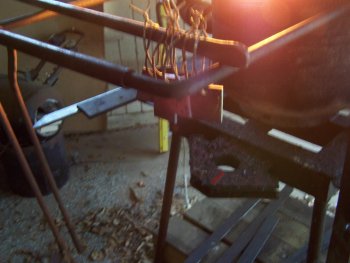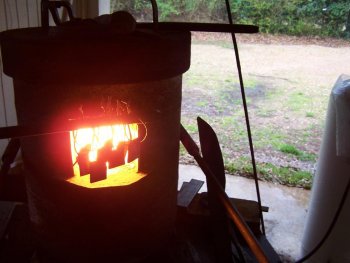First I would like to thank Delbert for his concerns as they are legitimate as for my time constraints, but then I would like to wholeheartedly express how honored I am by Rusty and Darrin’s confidence in my work in any of these areas. I am not bothered or offended at all by your requests but am very flattered. However my time constraints are a problem even for my own research these days. Rockwell testing is fairly quick and can be done by anybody well versed in the use of the machine, but metallography is very time consuming in the sample prep and can gobble up so many hours that the price I needed to do it for others became prohibitive in order to justify my time away from making my own blades.
I am very encouraged by Rusty and Darrin’s sincere approach to this project and will advise in any way I can, but for the analysis I prefer to be in control of the process from beginning to end in order to insure the conclusions are ones I can embrace with confidence. With all the factors I have pointed out (and these are just the beginning) I would hate to have it said that Kevin Cashen found that McMaster-Carr oil left more pearlite in 3/16 steel than peanut oil, without being able to back that up with my oversight of the entire process and being certain of all the variables.
I guess this is the real reason I felt compelled to post to this thread, Darrin’s point on doing research for helping the whole knifemaking community by possibly finding a readily available quality quench oil, is a very noble approach, but with it comes great responsibility. I truly feel very saddened for our craft by the amount of misinterpretation of results already accepted as fact that has made in into circulation on the internet and on the printed page. Thus I encourage the concept of testing one property (hardness in this case) at a time, but keeping in mind that this is but one small part of the overall picture.
For example, if maximizing hardness is your only criterion then you already have brine as the hands down winner, and the testing isn’t even necessary. The problem is that once you establish the best heat extractor you now need to move on to numerous other factors in determining the right quenchant. Short of the steel-stressing extremes of brine or water, there are quenchants capable of achieving maximum martensite with a minimum of stress.
Another consideration, and one that is critical to the custom knifemaker, is consistency and repeatability. This is governed by the long term stability of the quenching medium, as well as the ability to duplicate the exact same performance with the next batch used.
To my knowledge the first bladesmith to be familiar with Parks #50 and mention it in my presence was Dan Maragni many years ago at Ashokan when he gave some to me. I then started ordering it, using it with a passion and recommending it to other makers at hammer-ins and online. That was a very long time ago and I am confident I have been using the stuff longer than the majority of knifemakers who have heard of it. It is a wonderful product that offers quench speeds I have not found in any other oils, however it is made by the darned strangest company I have ever encountered for not wanting to sell their products to the public. Thus I no longer recommend this wonderful product, due to the fact that it is just too hard to obtain, and when you do find it available it through other people they seem to take full advantage of their ability to offer it (let’s just say that I have bought 55 gallon drums of the stuff, I know what the stuff goes for a gallon directly from Parks).
I cannot tell Rusty and Darrin how much I appreciate the effort to quantify two actual quench oils rather than resorting to any number of other substances that can simply cool steels without the same considerations for all the numerous other factors. The McMaster-Carr 11 second could be a reasonable replacement for the #50, but I would suggest you not ignore the Houghton International products that their R&D guru Scott MacKenzie has told me is more than a match for the Parks.
So I while my workload keeps me from taking too active of a role in this project, I am also by no means discouraging the worthy efforts involved, I would also like to see the resulting information as accurate, objective and useful to our craft as it can be. In this I would like to find how I can best help even if I cannot physically assist.

